A disturbing act of animal cruelty unfolded on the streets of Dallas, Texas. Security footage captured a man callously abandoning his dog on the side of the road, leaving the loyal animal bewildered and facing a dangerous situation.
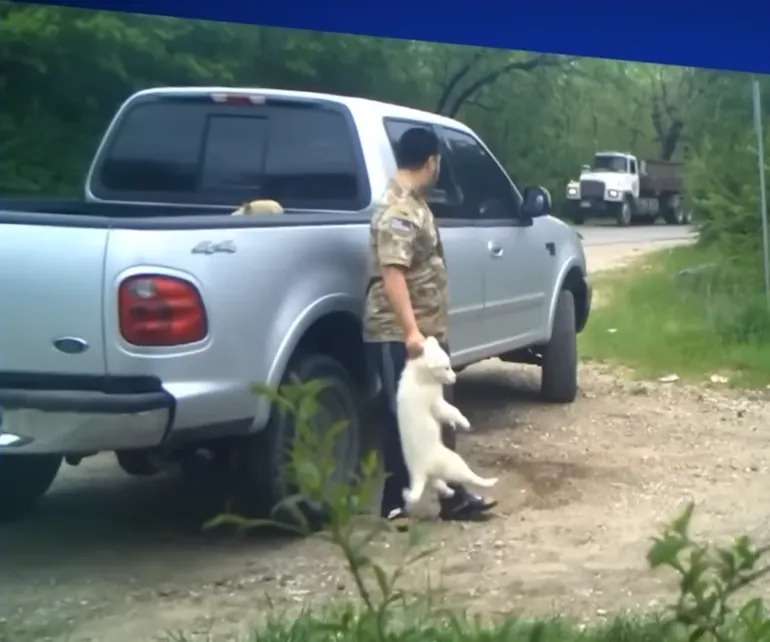
The video shows a white SUV pulling over on Tea Garden Road. The driver, a man, opens the back door and out leaps a trusting German Shepherd mix. The dog, oblivious to the impending betrayal, wags its tail excitedly. But the man’s heartlessness becomes evident as he climbs back into the car and speeds away, leaving the confused dog behind.
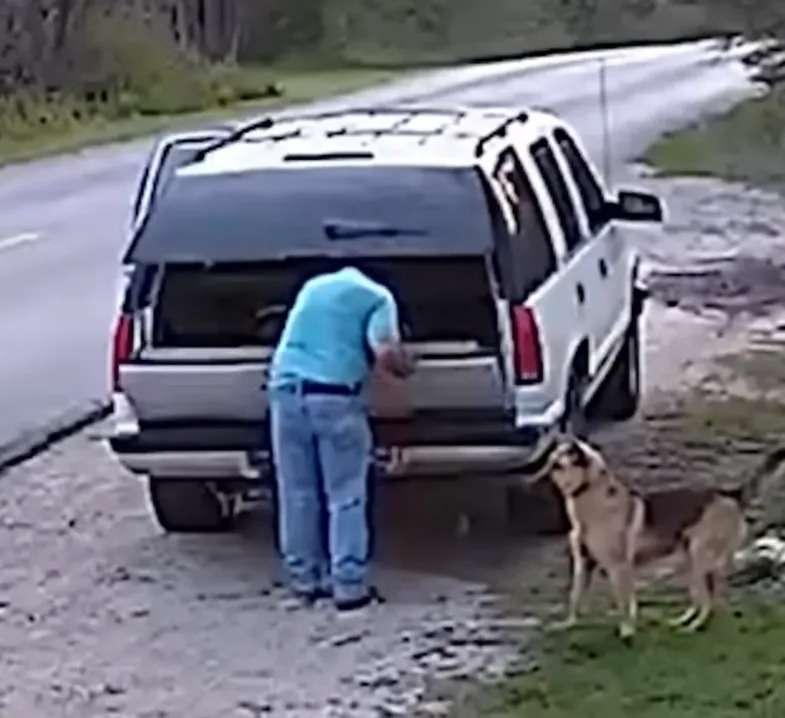
Despite the man’s callous disregard, the dog instinctively chases after the vehicle, narrowly avoiding oncoming traffic as it desperately tries to keep up. A voice yells from across the street, presumably a concerned witness, but the driver remains unfazed by the unfolding scene.
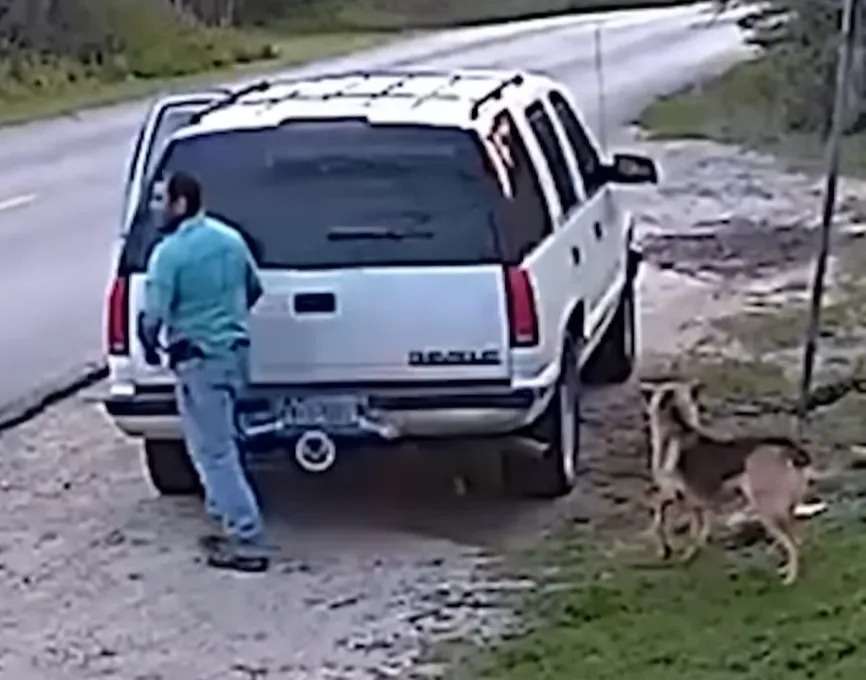
Thankfully, the abandoned dog did not suffer any physical harm. Dallas Animal Services promptly took the animal into their care, offering it a haven after the traumatic experience.
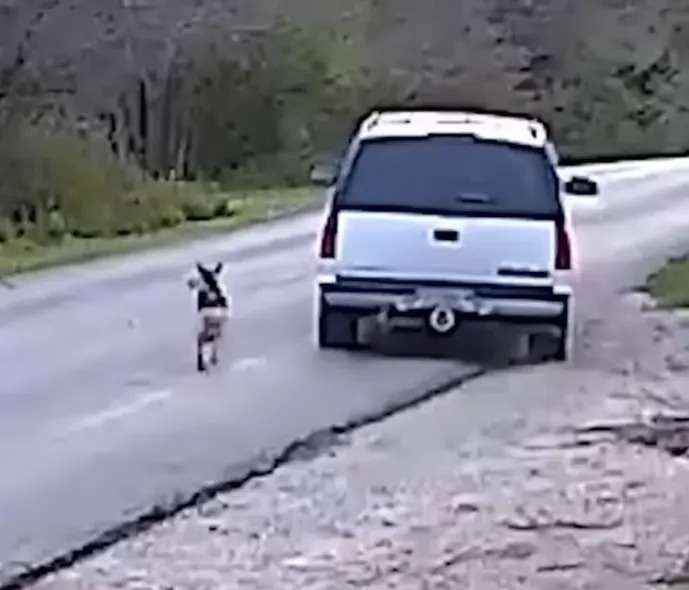
The police, determined to hold the perpetrator accountable, are seeking the public’s help in identifying the man. This act of animal cruelty, classified as a Class A misdemeanour, highlights the disturbing reality that some individuals treat their animal companions as disposable objects rather than cherished members of the family.
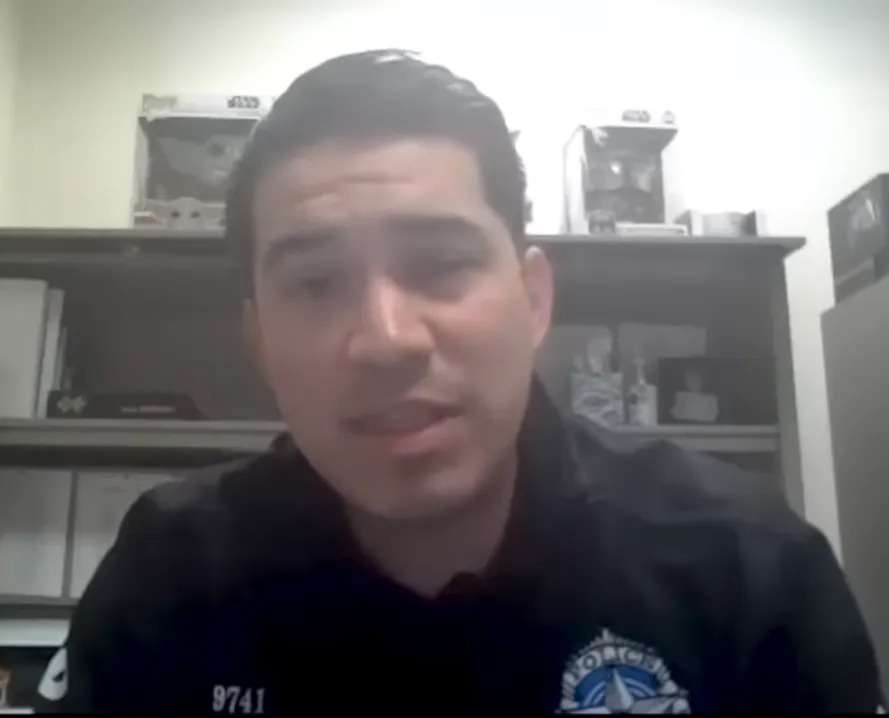
The hope lies in the swift action of Dallas Animal Services and the ongoing investigation. By bringing the perpetrator to justice, a message of zero tolerance for animal cruelty can be sent, while the rescued dog, hopefully, finds a loving and responsible forever home. This incident serves as a stark reminder of the importance of responsible pet ownership and the devastating consequences that animals can face when neglected or abandoned.
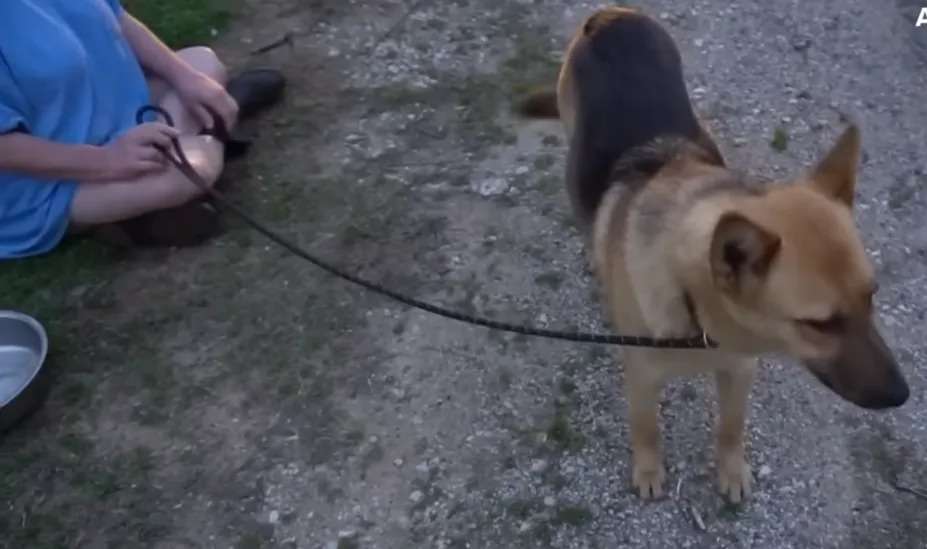
Watch The Full Video Here:
If your furry friend is leaving a trail of messes around the house, you’re not alone in wondering why your dog has diarrhea. It’s never fun dealing with accidents, and understanding the reasons behind this common issue can help you get to the bottom of it. As a seasoned dog trainer, I’ve seen my fair share of upset stomachs in our four-legged companions.
When your pup is not feeling their best, it can be concerning and frustrating. Diarrhea in dogs can stem from various factors, from dietary indiscretions to underlying health issues. Knowing what might be causing your dog’s upset tummy is the first step in helping them feel better and getting your household back to normal.
Understanding Dog Diarrhea
To help your furry friend when they’re experiencing diarrhea, it’s crucial to understand the possible causes behind it. Here’s what you need to know:
Dietary Indiscretions
Sometimes, your dog’s upset stomach can be a result of dietary indiscretions, such as scavenging for food or eating something they shouldn’t have. Keep an eye on what your dog consumes to prevent tummy troubles.
Sudden Diet Changes
Abrupt changes in your dog’s diet can lead to digestive issues, including diarrhea. Gradually transitioning your dog to new food can help avoid gastrointestinal upsets.
Parasites
Worms and other parasites can cause diarrhea in dogs. Regular vet check-ups and proper deworming can help prevent parasite-related stomach problems.
Stress and Anxiety
Just like humans, dogs can experience stress and anxiety, which may manifest as diarrhea. Create a calm environment for your dog to help ease their emotional distress.
Infections
Bacterial or viral infections can also be culprits behind your dog’s diarrhea. If you suspect an infection, consult your vet for appropriate treatment options.
Underlying Health Conditions
In some cases, diarrhea can be a symptom of underlying health issues like inflammatory bowel disease or pancreatitis. A thorough examination by your vet can help identify and address these conditions.
Understanding the potential reasons for your dog’s diarrhea is the first step in providing them with the care they need to feel better. Remember, consulting your vet is always advisable for accurate diagnosis and treatment.
Diagnosing the Issue
When your dog is experiencing diarrhea, it’s crucial to identify the underlying cause promptly. Diagnosing the issue accurately will help in providing the appropriate treatment and getting your furry friend back to feeling their best. Here are some steps to help determine the cause of your dog’s diarrhea:
1. Observation at Home
Start by observing your dog’s behavior at home. Note any changes in their diet, water intake, activity level, and bathroom habits. Pay attention to the consistency, color, and frequency of their stools.
2. Vet Examination
Consulting a vet is essential for an accurate diagnosis. The vet will conduct a physical examination of your dog and may recommend tests such as fecal analysis, bloodwork, and imaging studies to pinpoint the cause of the diarrhea.
3. Dietary History
Provide your vet with a detailed dietary history of your dog, including their regular food, treats, and any recent changes in their diet. Dietary indiscretions and sudden diet changes can often lead to digestive issues.
4. Parasite Check
Parasites like worms can cause diarrhea in dogs. Your vet may recommend testing for parasites and deworming your dog if necessary.
5. Stress Assessment
Stress and anxiety can also contribute to gastrointestinal problems in dogs. Discuss any recent changes or stressful events in your dog’s life with your vet.
6. Testing for Infections and Health Conditions
Infections, such as bacterial or viral infections, as well as underlying health conditions like pancreatitis or inflammatory bowel disease, can be potential causes of diarrhea. Your vet may suggest further testing to rule out these conditions.
By closely monitoring your dog’s symptoms, consulting your vet, and following their recommendations, you can effectively diagnose the issue causing your dog’s diarrhea and take the necessary steps to help them recover swiftly.
Treatment Options
When it comes to treating your dog’s diarrhea, there are several options available depending on the underlying cause identified by your vet. Here are some common treatment approaches:
1. Dietary Adjustments
Your vet may recommend switching your dog to a bland diet to help soothe their digestive system. This typically involves feeding them a mix of boiled chicken and rice to settle their stomach.
2. Medications
In some cases, your vet may prescribe medications to address specific issues causing the diarrhea. These may include antibiotics for bacterial infections, dewormers for parasites, or anti-diarrheal medications to manage symptoms.
3. Fluid Therapy
If your dog is dehydrated due to diarrhea, your vet may suggest administering fluids either orally or intravenously to replenish lost fluids and electrolytes.
4. Probiotics
Introducing probiotics to your dog’s diet can help restore the balance of good bacteria in their gut, promoting healthy digestion and potentially reducing diarrhea episodes.
5. Avoiding Certain Foods
Your vet might recommend avoiding certain foods that could exacerbate your dog’s diarrhea, such as fatty or spicy foods, until their digestive system recovers.
Remember, always follow your vet’s advice when it comes to treating your dog’s diarrhea to ensure the best possible outcome. By addressing the underlying cause and following the recommended treatment plan, you can help your furry friend get back to their happy and healthy self in no time.
Preventing Diarrhea in Dogs
Ensuring your furry companion’s health and happiness is crucial. Here are some practical steps to prevent diarrhea in dogs:
- Balanced Diet: Feed your dog a well-balanced diet suitable for its breed and size to maintain proper digestion.
- Avoid Sudden Changes: Gradually transition your pet to a new diet to prevent digestive upsets.
- Hydration: Always provide fresh water to keep your dog hydrated and support healthy digestion.
- Regular Exercise: Engage your dog in regular exercise to promote overall well-being, including digestive health.
- Stress Management: Minimize stress factors in your dog’s environment to prevent gastrointestinal issues.
- Routine Vet Check-ups: Regular visits to the vet for check-ups and vaccinations can help identify and address potential health concerns early.
- Parasite Control: Keep up with parasite prevention measures as advised by your vet to prevent parasitic infections that could lead to diarrhea.
Remember, a happy and healthy dog starts with proactive care and attention to their well-being. By following these simple strategies, you can help prevent diarrhea and ensure your canine companion leads a vibrant and active life.
Conclusion
So, there you have it – a rundown on why your furry friend might be experiencing diarrhea. Remember, it’s crucial to pinpoint the cause to provide the right treatment. From dietary adjustments to medications and fluid therapy, there are various ways to help your pup feel better. And let’s not forget about prevention! By keeping an eye on what your dog eats, staying consistent with their diet, and ensuring they’re hydrated and stress-free, you can reduce the chances of diarrhea creeping up again. Your dog’s health is a top priority, so stay proactive, keep them happy and healthy, and enjoy many more tail-wagging moments together.
Frequently Asked Questions
What are the common causes of diarrhea in dogs?
Various factors can cause diarrhoea in dogs, including dietary indiscretions, sudden diet changes, parasites, stress, infections, and underlying health conditions.
How can I diagnose the cause of my dog’s diarrhea?
To diagnose the cause of your dog’s diarrhea, observe them at home, consult a vet for examination and tests, provide dietary history, check for parasites, assess stress factors, and test for infections and health conditions.
What are the treatment options for dog diarrhoea?
Treatment options for dog diarrhoea include dietary adjustments to a bland diet, medications like antibiotics or dewormers, fluid therapy for dehydration, probiotics for gut health, and avoiding certain foods.
How can I prevent diarrhoea in my dog?
Prevent diarrhoea in your dog by feeding a balanced diet, avoiding sudden diet changes, ensuring hydration, promoting regular exercise, managing stress, scheduling routine vet check-ups, and controlling parasites.